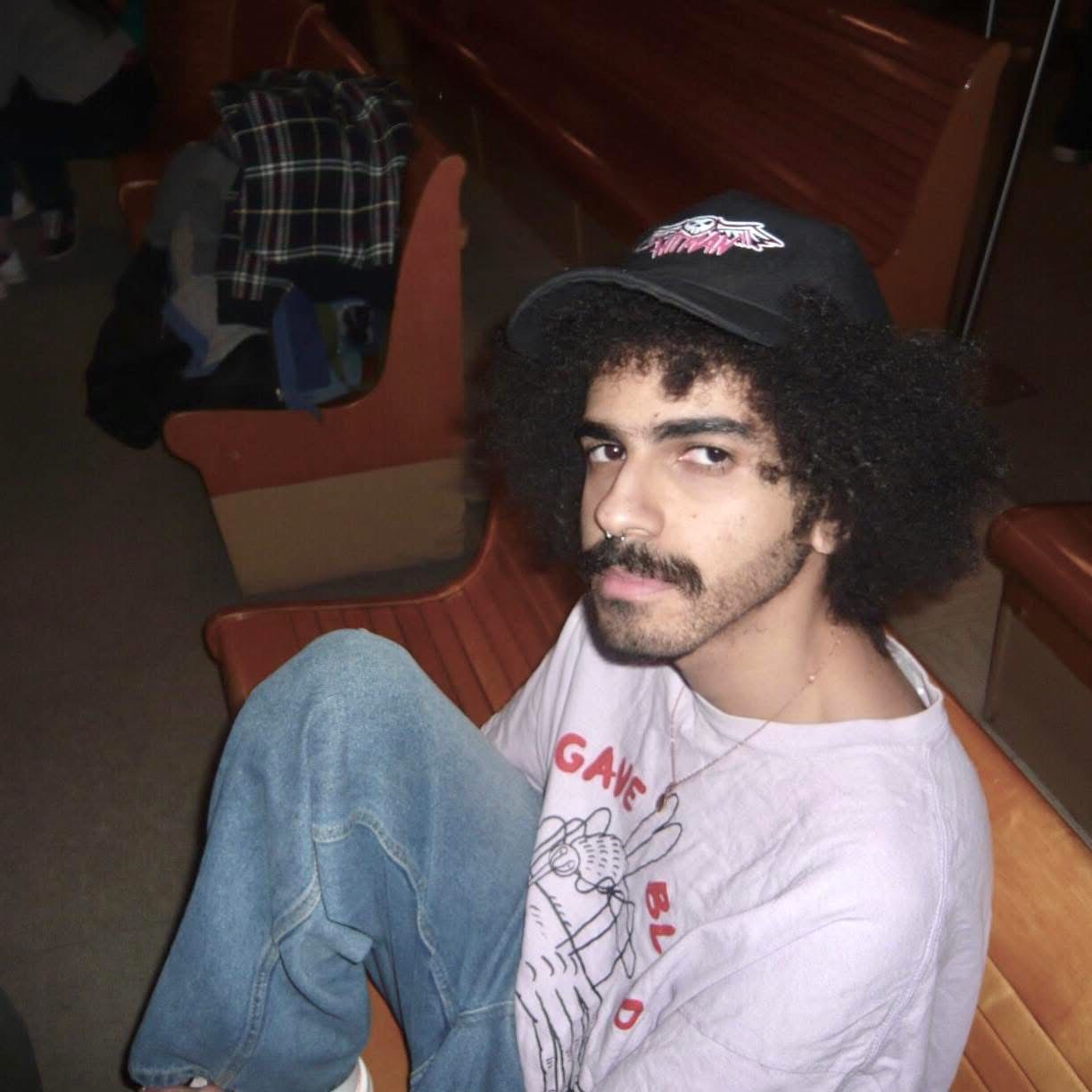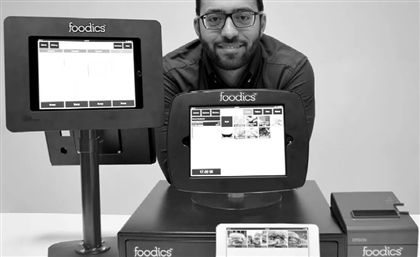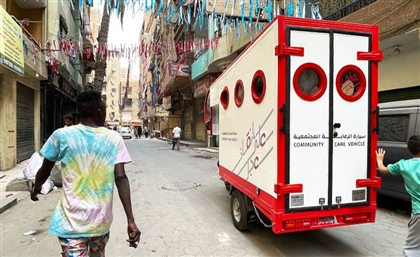In Conversation with Eugene Brikius: Saving Work Meals With lechef
We sat down with lechef’s founder to explore how his idea for hassle-free office meals is reshaping the workday in the GCC.
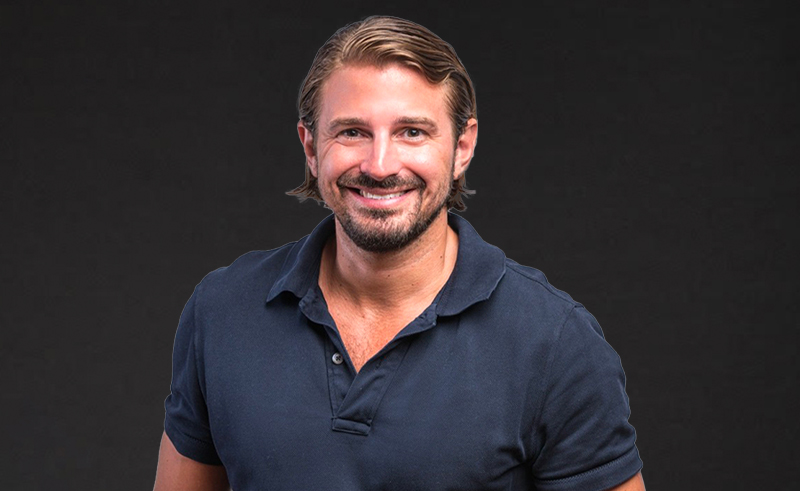
lechef, a foodtech startup based in Saudi Arabia, claims to offer a new approach to workplace dining in the MENA region with “smart canteens” - fridges stocked with fresh, ready-to-eat meals. The idea is to make it easier for employees to grab meals at work so that they could potentially save time and stay productive.
Eugen Brikcius, who already made a name for himself with startups like Jeeny and Foodics, took a look at workplace dining and noticed a problem: Too much time spent stressing over lunch plans, not enough decent options, and not enough convenience. That’s where lechef came in. The company says its internal research shows 65% of employees in Riyadh and Jeddah struggle to find convenient, appealing meals.
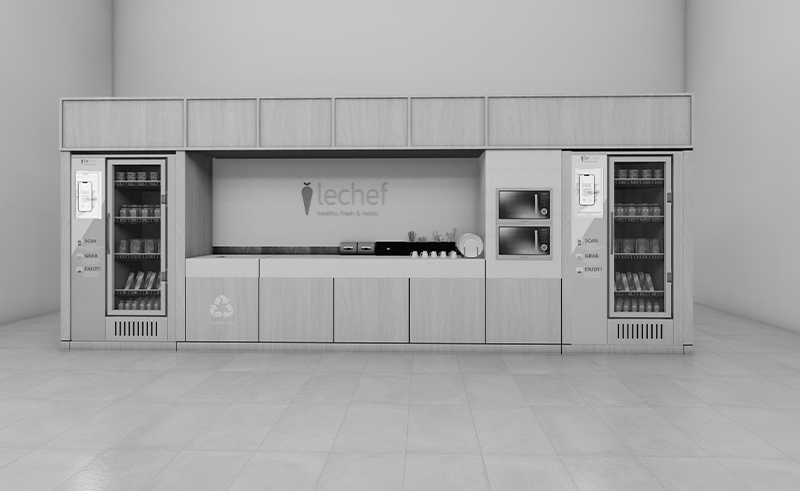
The canteens work with a mobile app: users scan a QR code, pick meals, and pay automatically using RFID technology. lechef claims this setup could save time by cutting out checkout lines and reducing costs for employers with minimal maintenance needs.
We sat down with Eugen Brikcius to learn more about lechef and its vision…
Your experience includes leadership roles in ride-hailing, e-commerce, and food and beverage technology with companies like Jeeny and Wadi. Could you start by telling me a bit about yourself and what inspired you to create lechef? How did the idea take shape?
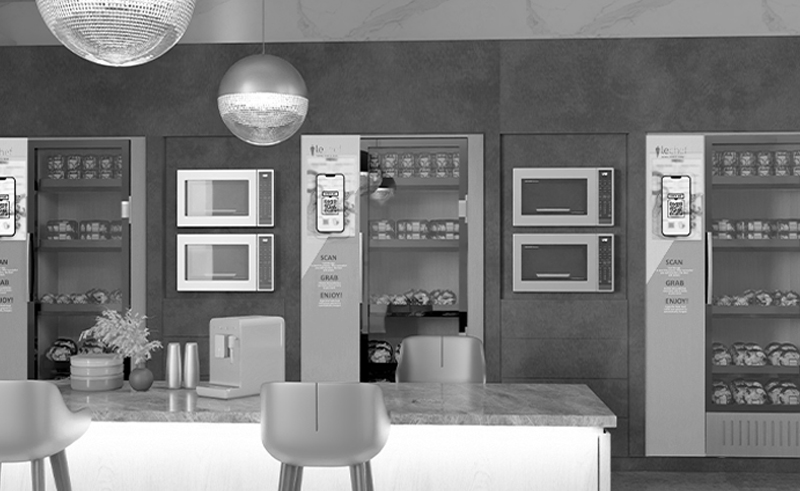
So, I came to the region over 10 years ago and launched Easy Taxi, which became Jeeny for Rocket Internet. I also became CEO of Wadi.com, an e-commerce company that pivoted to groceries. Before that, I was with Lazada in Southeast Asia, which sold to Alibaba for about $3 billion.
After Rocket Internet, I joined Foodics, which was more sales-driven than marketing-driven. I’ve seen a lot in food delivery and last-mile logistics. Rocket Internet founded Delivery Hero, which acquired HungerStation, so I was in touch with people from those companies.
What I saw in Saudi, especially in Riyadh, was that even though food aggregators were extremely successful, there was still a gap when it came to workplace dining. That’s when the idea for lechef started to take shape. But I always thought the service offerings were lacking, especially when it comes to healthy food. Healthy food is often seen as something that doesn’t taste good, and tasty food is usually considered unhealthy. There’s a gap in offering food that’s both healthy and tasty.
The experience also wasn’t up to par, especially compared to what I’ve seen in my home country, Austria, with Foodora, or even Talabat in Bahrain. In Saudi, for example, it’s too complicated to leave your office to walk even just 400 metres in the heat - 45-degree temperatures, no sidewalks, and traffic make it a hassle. Getting healthy lunches is difficult with services that lack flexibility, and you can’t decide on the same day.
What was the initial approach you took for lechef, and how did the concept evolve into the smart fridge model?
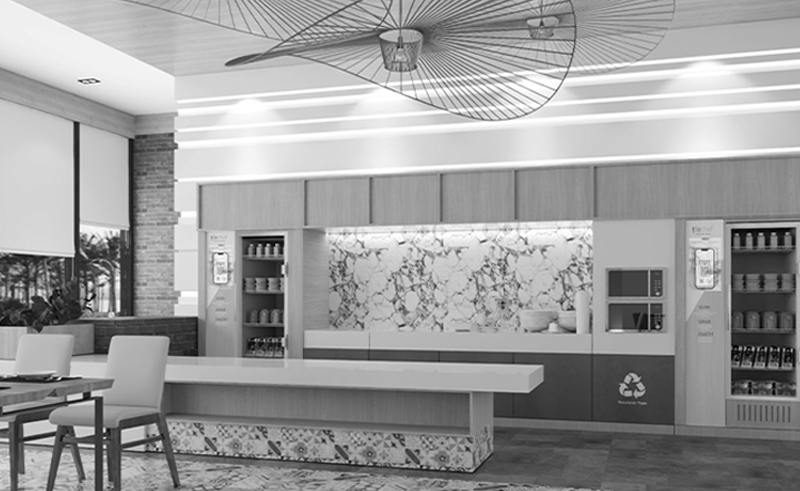
We started by delivering healthy food to a small group of consultants in Saudi Arabia, and it worked well. Then COVID happened, and we paused. After regrouping, we sort of felt like just delivering food wasn’t enough; we needed to improve the experience. That’s when we came up with the idea of smart fridges. The beauty of the concept is that we deliver healthy, tasty food into a fridge located in the office. The company doesn’t have to manage the food, and no one has to wait for a delivery. We refill the fridge daily, and employees can grab their meal hassle-free
Walk me a bit through the process behind the tech of the lechef fridge and how it tracks meals.
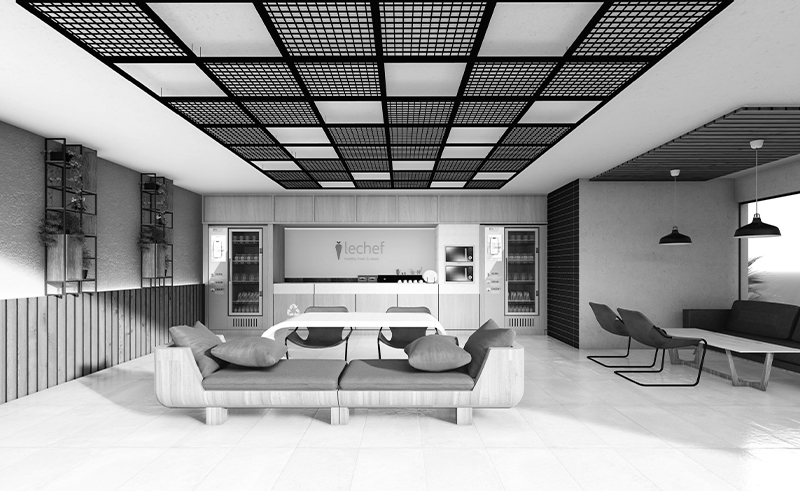
Yeah, so there’s a one-time registration in our app. You download the app, then enter your name, phone number, email, and credit or debit card details, and that's it. From there, you walk to the fridge, open the app, scan the QR code to unlock it, and take whatever you want. The fridge works with RFID technology. Every dish has a small sticker on it, and the fridge reads the sticker whenever the food moves. Even if the food shifts a bit, the fridge detects it. Once you close the fridge, the payment is automatically processed, and the employee doesn’t see anything. They can check their purchase history and invoice in the app. It’s the most hassle-free experience - you can go whenever you want, no need to wait for anyone. If a meeting runs long or starts early, you can go whenever. You don’t have to order, though we’re adding a pre-order option. The app can also just be used to unlock the fridge - you don’t have to scroll through food, you can just open it and grab what you want.
So what measures are actually in place to ensure the freshness and quality of the food once it’s in the fridge, and how exactly does sustainability factor into it?
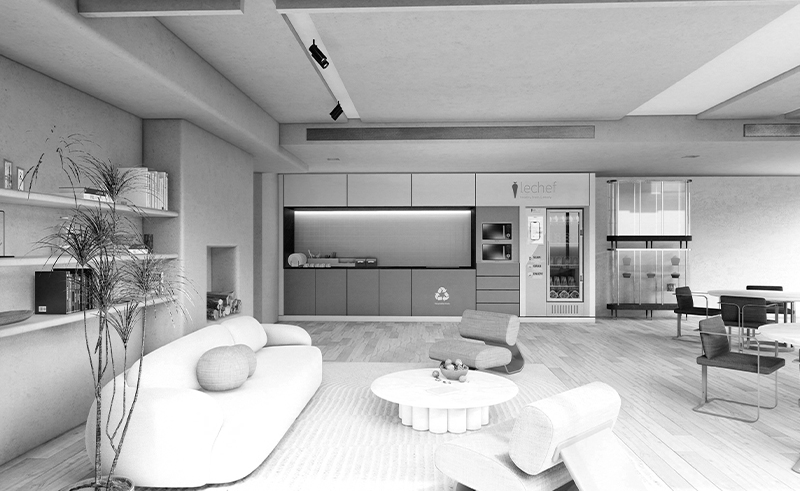
It's all part of the RFID technology, which gives us real-time business intelligence. At the end of each day, we can see a graph showing which food items sold, how quickly and which stock levels dropped. This basically allows us to adjust our restocking strategy accordingly. It’s a learning process. In the beginning, there’s some wastage, but over time, as we analyse customer buying behavior, we aim to reduce that. Once we activate pre ordering, it should reduce waste even more. Essentially, it’s all part of a business intelligence process.
Who would you say makes up your primary target market? Are there specific industries or company sizes you're targeting?
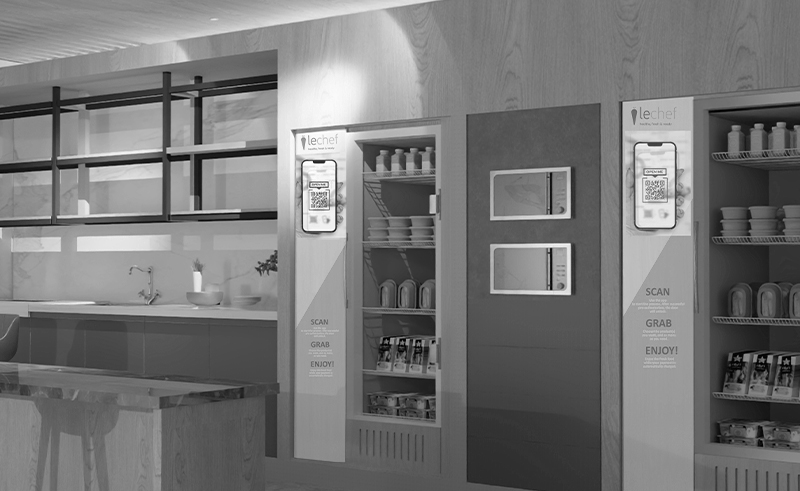
The great thing is when people hear 'healthy and tasty food,' they often assume it's going to be expensive. I had a call earlier with a client, and we agreed on piloting, and they asked about pricing. The reality is, our pricing is actually about 40% cheaper than what you'd pay outside for similar-quality food. Why? Because typically, restaurants mark up their food three to four times the cost due to aggregator fees, rent, service, etc. With us, the restaurant just prepares the food, packages it, and we pick it up. Our supplier sells to us at a much lower cost, and we don’t mark up the food, so we sell it at cost. That’s why the meals are so affordable. In terms of target customers, our ideal clients are companies with at least 50 employees, as the fridge serves around that many people. Ideally, we’d be serving companies with 100 or more.
lechef points to the time employees spend leaving the office to find food as a key issue, claiming it reduces productivity. However, some might argue that taking a break outside of the office could actually improve creativity, morale, and productivity. How do you respond to that perspective, and how does lechef address or challenge the idea of needing to stay in the office for meals?
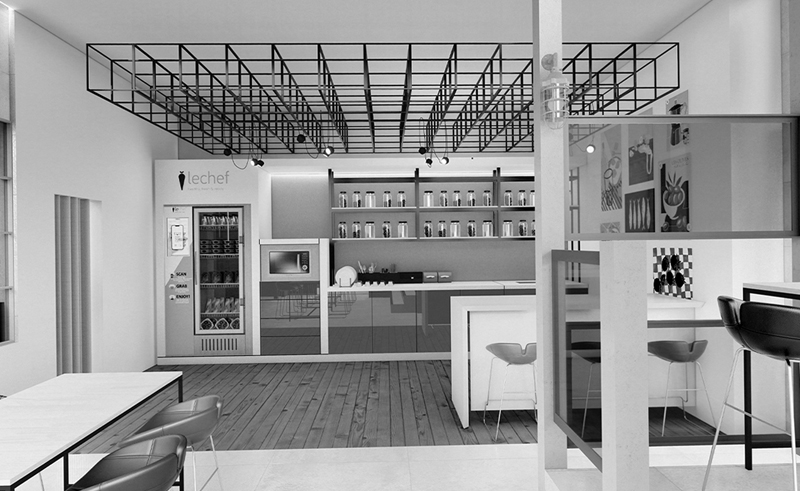
I think that’s a good question, but if you look at Riyadh, you have to consider the geographical situation. It's not like many other cities where you can just walk out and grab something. In Riyadh, stepping out for lunch means getting to your car, driving somewhere, choosing and ordering your food, waiting for it to be prepared, eating, paying, and then driving back to the office. I've been to offices in Riyadh where you wait five minutes just for the elevator.
The point is, I understand the idea of taking a break for lunch, but what's better than having the same or even better quality food than you'd get outside, while saving time to relax or have an extra coffee in the office? That’s why I believe similar businesses are operating successfully in other regions, like France and Austria. But I think Riyadh, Saudi Arabia is the perfect fit for this model. The geographical conditions, city layout, traffic, and weather all make this business even more suited for the region than, say, Central Europe.
Any plans to perhaps expand outside of Saudi Arabia?
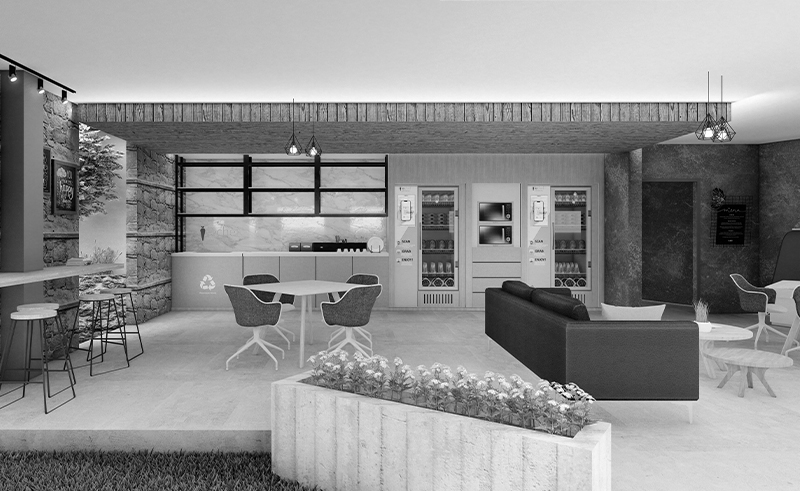
Yeah, long-term, I definitely see the whole GCC as a potential market. I’ve been having discussions with countries like the UAE, Qatar, and Bahrain. But I believe Riyadh is the best place to start. As I mentioned with my previous companies, Saudi Arabia, especially Riyadh, is the ideal location for launching a business. If it works here, you can scale quickly and then expand across the region.
Lastly, what would you say is lechef’s core mission in one sentence, and what are you hoping to accomplish through it, both personally and professionally?
It’s very simple really - I just want to create the best office lunch experience in the GCC. The way I sum it up is by offering the best possible healthy and tasty food, combined with the most hassle-free experience.
- Previous Article Syrian Cassette Archives Hosts Charity Event ft. Lynn Adib & More







